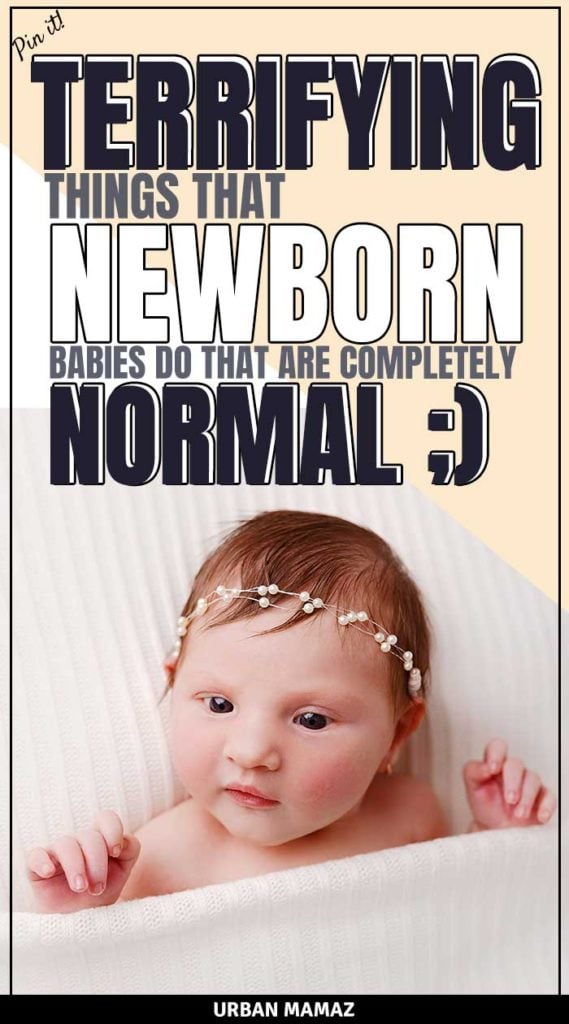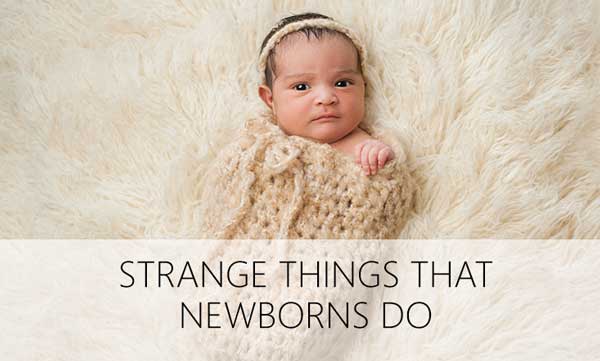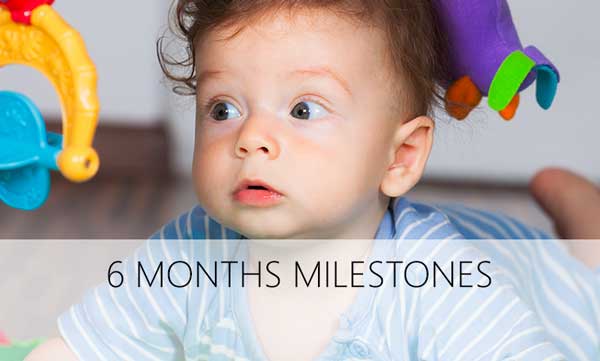Strange Things That Babies Do That Are Normal
Holding your little bundle of joy in your arms is exciting. After the horror of carrying the pregnancy for nine months and giving birth, it is finally time to be rewarded for the work with the gift of a baby. But, who knew the little tiny human being in your arms could do some things that terrify you? Well, you need to be prepared for these terrifying things that your baby will do but are completely normal.
1. Babies can sleep with their eyes open
Infants sleep so peacefully. It’s such a mesmerizing sight because they are not screaming at you. However, babies sleep quite differently from what you would expect. Your baby can sleep while glaring at you. So don’t be deceived to think that they are just quiet watching you. They are actually quite asleep. Sleeping with eyes half-open is something that babies do but which they will eventually grow out of.
Until when? Before a year and a half old, it’s normal for your baby to fall asleep with their eyes fully open or partially open. However, if you notice other symptoms or your baby is older and you notice that your baby is still sleeping with their eyes open, then you may be required to consult your pediatrician about it.
There are two main reasons why babies fall asleep with their eyes open; The first one is genetic, which means you should check if you or your partner sleep with your eyes open, there’s a stronger chance your baby will, too. And the second reason is the developing nervous system and REM. Rapid eye movement (SEM) sleep patterns combined with a still-developing nervous system might contribute to open eyes during sleep.
Should you do something? Unless you notice that your baby’s eyes seem to be developing dry or irritated, there is no need to do anything. In case of any other concerns, talk to your pediatrician.
Related: 50 Instagram Stickers to Celebrate Motherhood
2. Babies tend to vomit a lot
A baby has an underdeveloped digestive system especially the valve between the esophagus and the stomach. Therefore, your baby can sometimes vomit out undigested food that might smell.
Furthermore, just like adults of any age, also babies can have acid reflux, which can lead to baby vomiting in the first few weeks or months of your baby’s life. Vomiting from acid reflux happens when the muscles at the top of the stomach are too relaxed. This triggers baby vomiting shortly after feeding.
Here is what you can do to help slow down the vomiting :
- Avoid overfeeding your baby.
- Feed your baby smaller amounts of formula more often.
- Always burp your baby after feeding time is over.
- Hold your baby upright after feeding.
- Feed your baby slowly.
- Hold your baby’s head and chest up while feeding.
Looking at your baby vomiting is terrifying but normal for a child. Read more information about what to do when your baby frequently vomits.
3. Babies have ‘pulses’ on their head
When you first hold your baby, you may notice that the front part of their head tends to pulse. It moves up and down as if it has a ‘heartbeat’. If you observe, this area is usually a very soft spot. This is because of the extreme bendy nature of a baby’s skull. As a result, the pulses in their brain cause the soft spot to bulge and pulse too.

As you can see in the illustration, your baby actually has two soft spots called fontanels — one on top of that sweet little head, and a second, smaller one toward the back — that are gaps between the bones of your baby’s skull where bone formation isn’t complete. This allows the skull to be molded during birth.
By the time your little one turns 19 months old, the soft spots should be closed and the pulsing will go away. The smaller spot at the back usually closes by age 2 to 3 months. In the next illustration, you can see how the soft spots slowly disappear while the baby’s skull closes.

It’s completely normal to be a bit nervous about the soft spots on top of your baby’s head, but it won’t be long before you’ll get used to it. You can be gentle, but you don’t have to be scared to touch or care for your child’s head. There is a tough membrane over the gaps that protects the soft tissue and the brain. So you can touch gently your baby’s head, to wash or brush your baby’s hair or put on a cute baby hat. Don’t worry about protecting or harming it, soon it will close up completely.
4. Babies have jerky movements
As you observe your baby, you will notice that they sometimes have jerky and sudden movements now and then. Don’t be alarmed. This is normal for newborns. This is an involuntary startle response called the Moro reflex. Your baby does this reflexively in response to being startled. It’s something that newborn babies do and then stop doing within a couple of months.
You may notice your baby’s startle reflex when you’re trying to put them down to sleep. Leaning over to lay them down may give your baby the sensation of falling. It can even sometimes wake them up. If your baby’s jerky movements are keeping them from sleeping properly, you can swaddle him or her with this unique swaddling suit that is designed especially to help your baby sleep longer. Read more about the benefits of swaddling a newborn and how to swaddle your baby the right way.

5. Babies groan
Sometimes when you hear your baby crying, you may notice that they are not only crying but also groaning, grunting or making other strange noises. While they may sound weird, these noises are not harmful.
Sometimes, your baby can even snore. Yes, snore. The reason for this is that he or she has a narrow nasal passage causing mucus to be trapped. As a result, your baby produces these sounds as she breathes.
6. Babies hiccup
It is weird to hear a baby hiccup but babies do have hiccups. The reasons behind hiccups in babies is still a mystery but it is completely normal. He probably won’t be bothered by his hiccups but it may help if you burp him after every feed.
7. Babies have crossed eyes
Crossed eyes is a condition in which both eyes do not look at the same place at the same time. Crossed eyes, can be a stressful issue for parents who don’t know that it is pretty normal for newborns. Infantile esotropia is a type of crossed eyes that appears in babies during their first year of life. This normal occurrence is due to a lack of development at this stage in their lives.
Watch this video of a cute newborn baby boy looking at his mom with his crossed eyes 😉
Babies do things that can be terrifying especially for first-time moms. However, they are quite normal and will quickly fade away once the baby grows and develops.
Related Posts

















